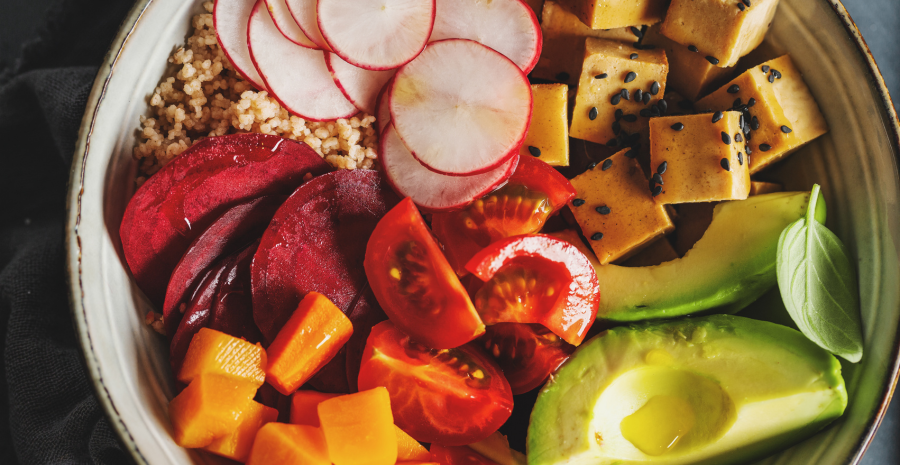

Vegetarianism isn’t a new concept. Whether they are doing it because of a love for animals or because of the many health benefits, many people feel strongly about going meatless. October is Vegetarian Awareness Month, and even though most of us know what that entails, now is a great time to shed awareness on some of the little-known aspects of going vegetarian.
What does it mean to be a vegetarian vs. a vegan?
While most vegetarians don’t eat any type of meat, gelatin or rennet, they may still consume other animal products. In fact, dairy and eggs can fit nicely into a vegetarian diet as long as there are plenty of fresh fruits, vegetables, legumes, etc. Vegans, however, don’t jive with any animal consumption. So, in general, they won’t go for any dairy, eggs, honey, leather, or anything else from an animal. In this blog, we are going to focus on the vegetarian diet, but that doesn’t mean being vegan doesn’t carry some of the same benefits.
More plants = better living
Being a vegetarian (and vegan, too!) means you get a wider range of plants in your diet than the average omnivore. This can lead to a variety of health benefits, including:
- Lowered cholesterol
- Lowered blood pressure
- Lower rates of type 2 diabetes
- Weight management
- Better heart health
- Lower risks of developing cancer
- Keeping your brain sharp
However, not every vegetarian diet is created equal. Whether you eat meat or not, you can be prone to a variety of unhealthy eating habits, including consuming highly processed foods, sugar loaded beverages and snacks and more. Not only that, besides choosing whole foods over junk, it is important for vegetarians to plan their meals so they can get all of the nutrients they need. Animal products contain important building blocks such as protein, fatty acids, iron, zinc, iodine, calcium and vitamins D and B-12. Many of these can be absorbed through supplements or plants in the right combinations.
If you have questions, speaking to your healthcare practitioner or a dietitian is a great option. If you can follow a vegetarian diet and truly make it about using whole ingredients, you will most likely be on a track toward excellent health!
A diet fit for the planet
Many vegetarians go meatless because of its impact on our earth. From gobbling up our water sources to affecting soil and air quality, raising meat through mass agriculture is not good for animals or our planet. In fact, it uses natural resources at an astounding rate. Plant-based diets, even if they include some meat or animal products, are generally much more sustainable than those that rely heavily on this type of agriculture. In fact, a diet including meat (especially red meat) requires up to three times as many resources as a vegetarian diet.
3 Simple Ways to Try More Plant-Based Eating this Month
Ready to help the planet and feel better? Here are three things you can do to get more plants and less meat into your diet during Vegetarian Awareness Month:
- Find a vegetable-loaded plant-based recipe to share with your family and friends. Here is a fun place to start.
- Replace your meat-based breakfasts or lunches with vegetarian fare for one week. If you usually enjoy a salad or deli sandwich for your lunch, try these mason jar salads or a delicious vegetarian deli wrap instead!
- Blend up a smoothie! We know it is getting colder outside, but that doesn’t mean we don’t have some smoothie recipes guaranteed to get you in the fall mood and dial up your plant consumption. Pumpkin spice anyone?
Need more information on nutrition or what you should eat to help boost your health? Make sure to talk to a dietitian at one of our three Hancock Health Wellness Center locations today!